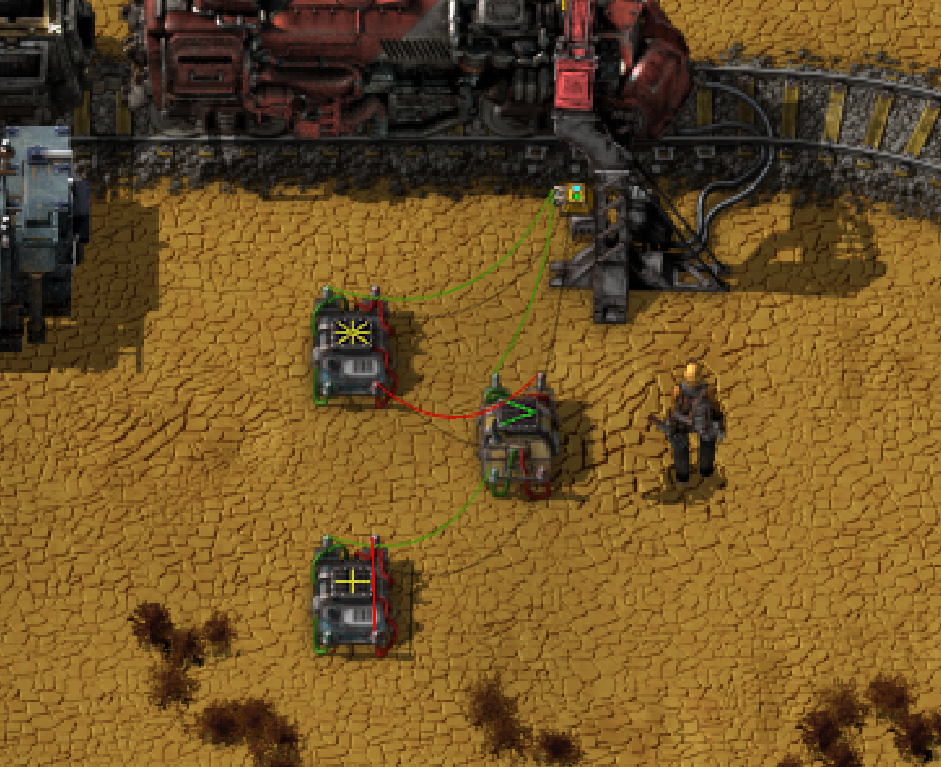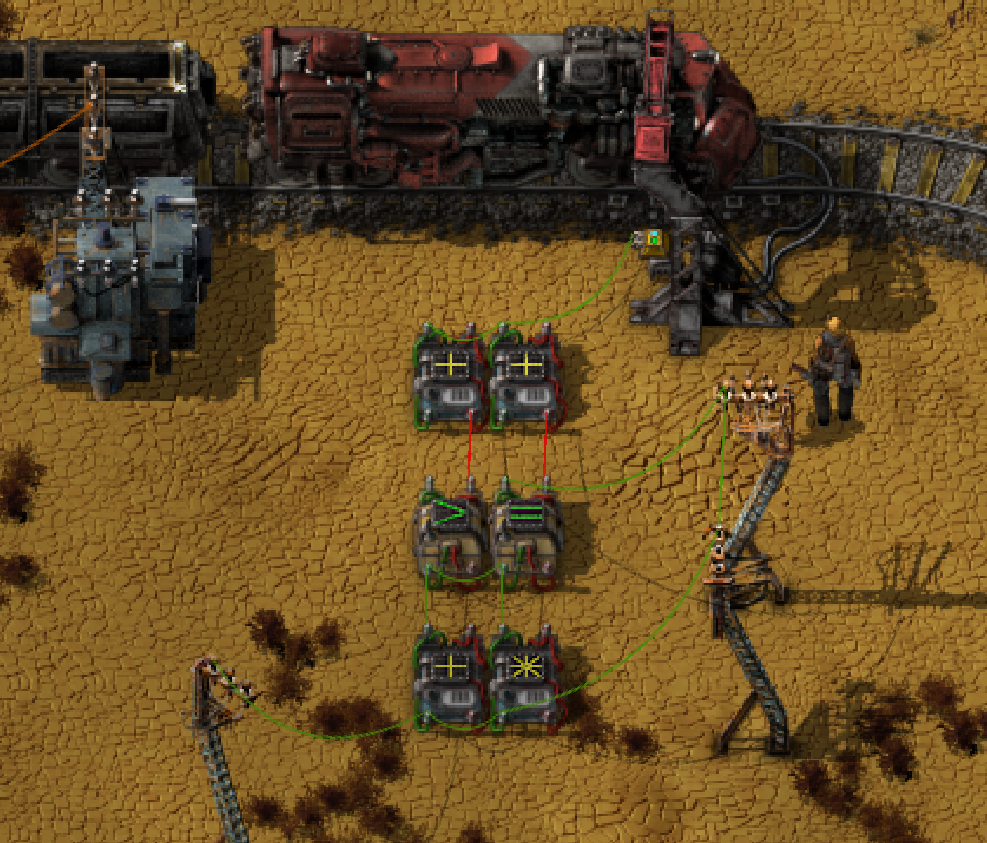I'm trying to design a combinator circuit that will output a signal with the train's content while a train is at the train stop (i.e. the same signal as the train stop's "Read train contents" mode), but when the train leaves, it should hold the signal at the content of the last train until the next train arrives.
In pseudo-code:
If T > 0 # If a train is at the station
Output = Everything # Output train contents
Else
Output = Output from previous tick
End
So far, I've got this:
The first arithmetic combinator is set to Each * -1 -> Each, which is added to the signal from the train stop on the next tick to give the changes between each tick as a "delta-signal".
The decider combinator is set to T >= 0 -> Everything so that this "delta-signal" is ignored on the tick when the train leaves the station. (T > 0 indicates that a train is at the station, so "delta-T" will pulse negative as the train is leaving)
Finally, this is fed into a simple accumulating Each + 0 -> Each arithmetic combinator which also feeds into itself, acting as the memory cell of the system.
The result of this is that the memory cell updates continuously if I add or remove items from the train while it's at the station, and it correctly remembers the content as the train leaves.
However, I haven't been able to figure out how to reset it properly when the next train arrives, so currently, each train that arrives at the station adds to the current count rather than overwriting it.
I essentially need to ensure that on the tick when the train arrives, the current content of the memory cell is subtracted from the "delta signal", but I keep struggling to get the timing right while at the same time preventing the value of T from the memory cell (which I otherwise don't care about) from interfering without using a ton of combinators.



